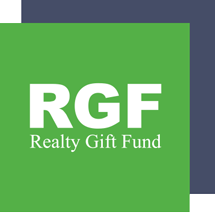How to Donate Real Estate as a Gift
The Steps to a Donation
Initial inquiries may originate from a donor, the donor’s advisor, or a nonprofit referring us to a potential gift. We do not expect any of those involved in the early discussions to be real estate experts or to be able to perform an initial assessment of the property’s suitability as a charitable gift. We may see value in a deal that others don’t.
In fact, we encourage our nonprofits and advisors to guide the original discussion to the point where everyone simply “wants to learn more”. Therefore…
Step 1
The first call may be from the nonprofit or advisor acting on a donor’s request to test if a property is likely acceptable. A minimum of information is needed, and we appreciate and encourage these calls.
Step 2
If the proposed property appears to fit, a follow-up discussion that includes the donor is recommended so that all parties may review the donor’s goals, learn more about the property, and discuss a process that uniquely suits the donor and the property.
Step 3
With the basic information at hand, Realty Gift Fund (RGF) prepares a draft Donation Agreement for all to review. At an early stage, RGF will create an initial Net Gift Estimate to summarize the likely outcome of the gift, using assumed values from the early discussions. Donors never pay for the RGF process, only for the ultimate appraisal.
Step 4
In fact, RGF does not charge a fee for its work, but retains a small portion of the net proceeds only after RGF has accepted and sold the property, at which time RGF grants the bulk of the net proceeds to other nonprofit(s) recommended by the donor and approved by RGF. The amount retained, the amount(s) granted, and the list of nonprofits benefiting from the grants are incorporated into the written Donation Agreement, signed by RGF and the donor.
Step 5
Once the agreement is signed, Realty Gift Fund will commence its “inspection period” (typically 15-30 days), keeping the donor, advisor and nonprofit informed of findings. At this stage, RGF will engage a local real estate broker for expert on-site evaluation and to develop a marketing plan unique to the circumstances.
Step 6
During the inspection period, the donor may order an appraisal of the property. However, RGF will assist the donor with the timing of the appraisal which may vary according to the adopted marketing strategy.
Step 7
At the conclusion of the inspection and formal acceptance of the property, a deed will transfer the property from donor to RGF, the gift will be complete, and RGF will provide donor all documentation (including IRS Form 8283) for the donor’s tax file. All closing costs and prorations will be funded by RGF.
Step 8
After accepting the gift, RGF will undertake ownership costs, repairs, and the marketing of the property. RGF will fund all these costs until the property sells.
Step 9
The sale of the property may conclude shortly after the donation or may take an unknown period of time. When the property is sold, RGF will fund all closing costs and prorations.
Step 10
During the entire gift process, the appraisal is most often the donor’s only cost.
Step 11
Upon the sale of the property, RGF shall be reimbursed for its investment in the property, and 100% of the remaining net proceeds shall be distributed to the nonprofit world.
- As one of these nonprofits, RGF shall retain a small share of the net proceeds for its operations. RGF’s share is a flat amount determined by the size and complexity of the transaction, subject to a $20,000 minimum per donation, and made part of the donation agreement.
- On average, 97% of the net proceeds produced by RGF go towards its programs. Distributions are made by wire usually within 24 hours of receiving the net sale proceeds from the escrow officer closing the sale.
- RGF will provide the donor and the donor’s advisor a final Net Gift Estimate reconciling the initial assumptions to the actual outcomes.
Realty Gift Fund accepts Outright Donations, Bargain Sales, Partial Interests, and Bequests. Donations can be used to fund one or multiple other charities, in any combination, including Donor Advised Funds.

